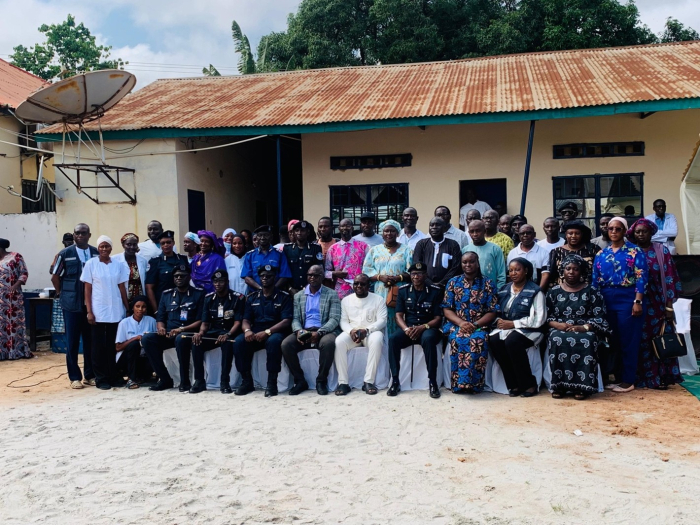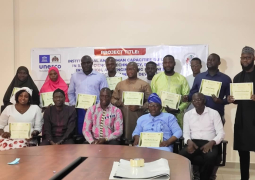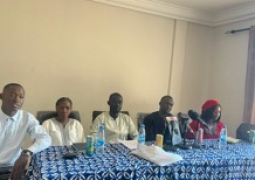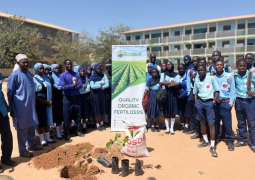
In his welcoming address, Chief Supt. Lamin Gassama, deputy Commissioner Medic, gave a brief background of the facility, recalling the Police Clinic started way back in 1995 with minimal qualified personnel.
Over the past years, he said, he said they have witnessed rapidity in terms of the human resources base boasting of more than five medical doctors, scores of nurses, midwives, lab assistants, dispensing assistants, a dental service, as well as a host of nurse attendants.
Chief Supt. Gassama acknowledged the efforts put in the project by former Commissioners, saying the concept of the Center is anchored on the congregational setting of the PIU, and the number of positive TB cases amongst officers.
“And as a result, it's befitting that we have such a facility in the PIU campus, kudos to the National Leprosy TB Program. Equally, we assure our partners that the center will be well kept and timely reporting is assured. Without timely reporting, no effort is going to be in place, so we promise to make that our target.”
To the Police High Command, he registered gratitude for their intervention, noting that when the idea came up, inasmuch as it was very prompt, the Police High Command were there to support them all the way.
He thus looks forward to a closer cooperation between the Police and the Ministry of Health.
Marie Bass Gomez, programme manager at the National Leprosy and Tuberculosis Control Program, said the event signifies not just the opening of a building, but the realisation of a shared vision; a vision of bringing quality health care services closer to those who serve and protect us all and the surrounding community.
To that end, she expressed heartfelt gratitude to the Global Fund for their unwavering support through the GC7 grant.
The partnership, she added, has been instrumental in advancing national efforts to end TB in The Gambia.
“We also commend the NLTP, the National Leprosy and TB Program for their dedication, technical leadership, and ensuring that TB services reach every corner of our nation. As I speak to you, we have more than about 50 DOT sites across the country, all the way to Koina.”
She calls for greater collaboration in their march to end TB in the country, pointing out that every partner plays a key role and together they can make progress as demonstrated in the launch.
“As we inaugurate this clinic, let us remember that our work is not complete. It has just begun. We must continue to sow the seeds of awareness, water them with service and compassion and trust that by God's grace we will reap the harvest.”
Alpha Khan, director of National Aids Secretariat, acknowledged that TB remains a global health threat affecting millions worldwide and claiming very many lives each year.
He said that the timely strengthening of prevention, testing and treatment are key elements to fighting TB.
“Any delays translate into further suffering and death. So globally, TB incidence is gradually declining with a cumulative reduction of 18% between 2015 and 2023. Similarly, our own context, the Gambia, has made commendable strides in reducing TB incidence, with a notable decrease from 145 to 142 cases per 100,000 population between 2022 and 2023. TB services in the Gambia remain free with support from the Global Fund.”
He reminded that there are no charges for TB cases - from diagnosis, treatment is offered free of charge.
“Furthermore, the programme offers nutritional support and transport reports to the MDR patients. These are those multi-drug-resistant patients. They are the most lethal patients of the programs, to ensure equitable access to care. Ending TB requires more than medical interventions.”
The facility, he added, is among the two that benefited from this kind of support, further expressing their resolve to collaborate with the security even more when the opportunity arises.
Read Other Articles In National News

Research managers tasked to ensure efficient mgmt., to align national priorities
Jul 11, 2025, 11:32 AM



